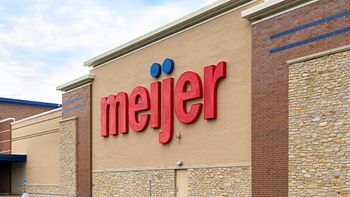
- Pharmaceutical Commerce - August 2023
- Volume 18
- Issue 4
AFP Caution Flag for Patients
While an option for financial assistance, patients should consider the challenges.
Alternative funding programs (AFPs) are being used by health plan sponsors to lower their costs, but they are hurting the very patients they should be serving. By forcing the search for funding of specialty drugs elsewhere, patients often must delay treatment that should be covered by their health plan. They also put additional strain on a limited safety net of patient assistance programs that qualifying patients deserve.
With AFPs, health plan sponsors exclude some or all specialty medications from coverage, labeling them as non-essential health benefits (EHBs). This happens despite prescription drugs being one of 10 EHB categories included in the Affordable Care Act (ACA). Without coverage, a patient’s out-of-pocket spending on these drugs no longer counts toward the deductible or out-of-pocket maximum.
Instead, the plans direct patients to separate non-health insurance companies or vendors, that then attempt to connect patients with financial assistance from a pharma manufacturer or charitable assistance foundation. At times, they direct patients to illegally import medications from outside the US.
1. Patients are told drugs are non-essential
Although specialty medications are FDA-approved drugs, and, therefore, should be covered by all health plans under the ACA, some health plan sponsors deem them non-essential to help reduce their own healthcare-related costs. What one plan deems to be “non-essential,” another plan may not.
2. Patients required to provide personal info
Vendors require patients to provide details such as household size and annual income to help determine the type of third-party financial assistance they may be eligible for. If patients refuse, the vendors will not help them, leaving patients on the hook for cost.
3. Patients encouraged to disguise themselves
Vendors help patients disguise themselves as uninsured so that they can apply for patient assistance programs to cover the cost of the prescriptions. No patient should ever be forced to do this, nor should a vendor disguise themselves as a patient.
4. AFPs tap into limited resources needed by the most vulnerable
Manufacturer and charitable assistance programs are intended for individuals who are uninsured or underinsured, not for individuals who have health insurance that should cover their needed medications. AFPs threaten the sustainability of safety net programs intended for patients most in need by jeopardizing the availability of limited funds.
5. Patients may incur significant drug costs
Once referred to a vendor, patients have a choice to work with them, or not. If the patient works with the vendor but they are unable to secure funding for them, then the patient may be faced with having to self-pay for the prescribed medication. If the patient chooses not to work with the vendor, they will be responsible for 100% of the drug cost. In each of these scenarios, the cost paid by the patient will not count toward their deductible or out-of-pocket maximum.
6. Patients may experience delays in treatment
If the vendor determines that the patient is not eligible for assistance from a pharma company or charitable foundation, the patient can ask the health plan for an exception to cover their drug. However, weeks may pass, resulting in a delay in initiation or continuation of treatment, with no guarantee of coverage. Unfortunately, there is no proposed regulation or legislation to ban AFPs. The most important thing patient advocates can do is to make sure elected officials are aware of AFPs and their impact on patients. We encourage patients to be mindful of the language used to describe covered benefits in their plans. We
must work together to ensure that all patients can access and afford their prescribed medications, specialty or otherwise.
About the Authors
Kevin L. Hagan is president and CEO and Amy Niles is chief advocacy and engagement officer; both at PAN Foundation.
Articles in this issue
over 2 years ago
Pharmaceutical Commerce - August 2023 Issue (PDF)over 2 years ago
Telling the 'Whole' Storyover 2 years ago
Collaboration at the Forefrontover 2 years ago
The Voyage to Beantownover 2 years ago
Are CEOs Getting Access Right?over 2 years ago
Breaking the Pharma Industry’s Bundled Pricing Arrangementsover 2 years ago
Doubling Down on Drug Adherenceover 2 years ago
Wholesalers Step Up Their Partneringover 2 years ago
Are ADMs a Viable Option for Pharma?over 2 years ago
Exploring Uses of RFID TechnologyNewsletter
Stay ahead in the life sciences industry with Pharmaceutical Commerce, the latest news, trends, and strategies in drug distribution, commercialization, and market access.



